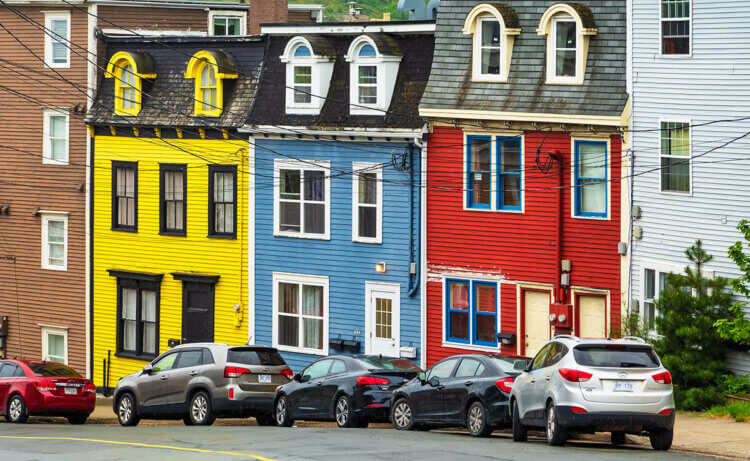
All images © Robin and Arlene Karpan
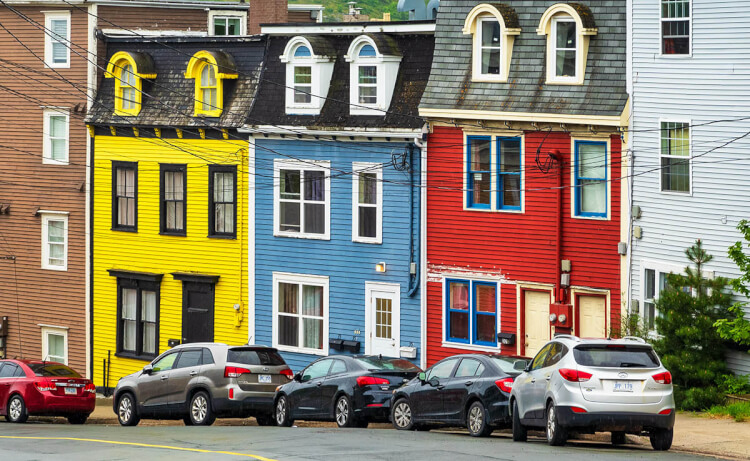
St. John’s, Newfoundland ranks as the most colourful city in Canada, thanks in large part to the brilliant Jellybean Row Houses of downtown. Strolling along the streets is like being whisked away into a fairytale world of whimsy.
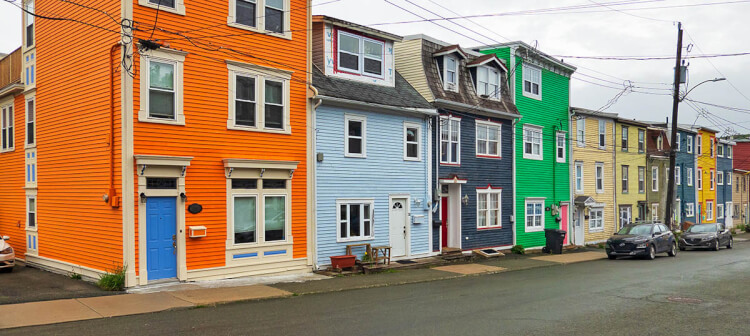
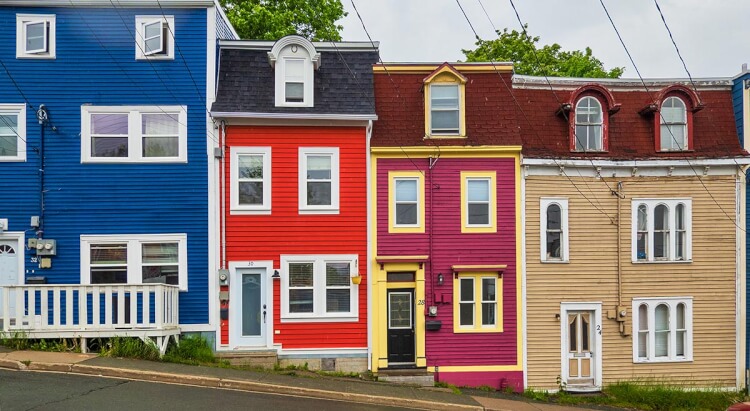
Discovering the Jazzy Jellybeans
Exploring the downtown streets became a contest to see who could find the most colourful row houses spread along the hillsides rising from the harbour. While we had seen photos of the multi-hued houses before travelling to St John’s, we were surprised to discover so many in a relatively small area. They got their names for being every color of actual edible jellybeans, plus a few more you probably won’t find on the candy treats.
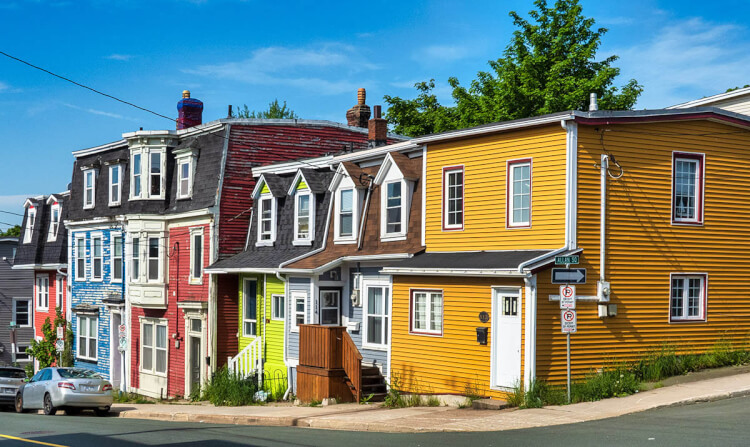
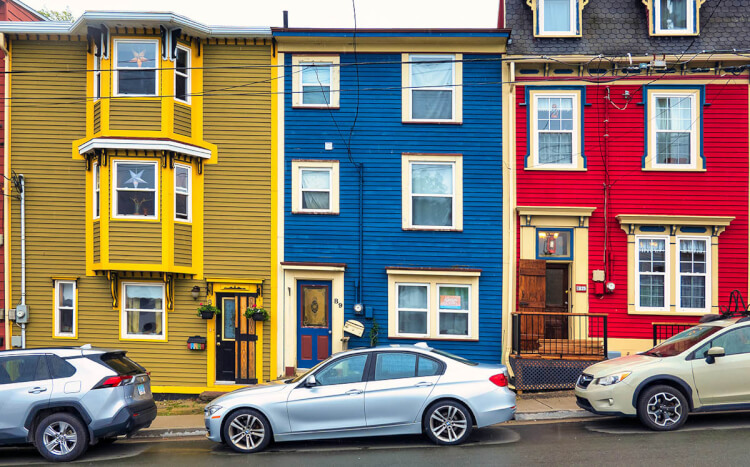
We sometimes see reference to Jellybean Row, though there isn’t a row as such. The rainbow houses and business buildings are scattered throughout the downtown area on several different streets. Even alleys hold surprises such as artwork on fences, a door-knocker shaped like a fish, or a port-hole shaped window in the front door.
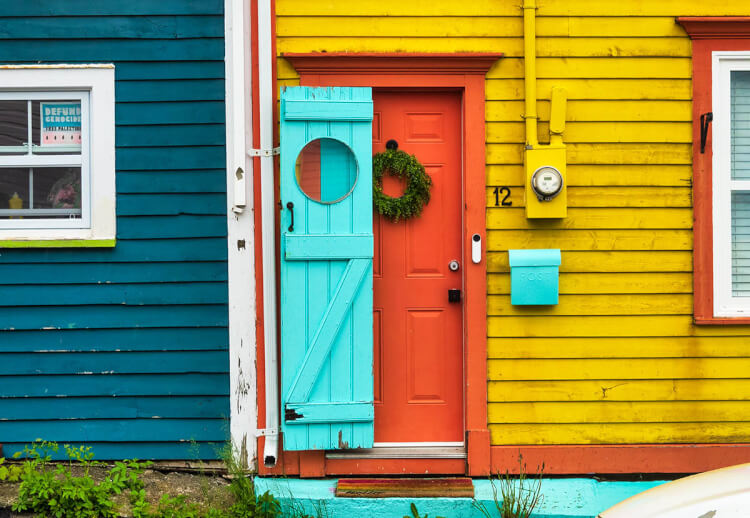
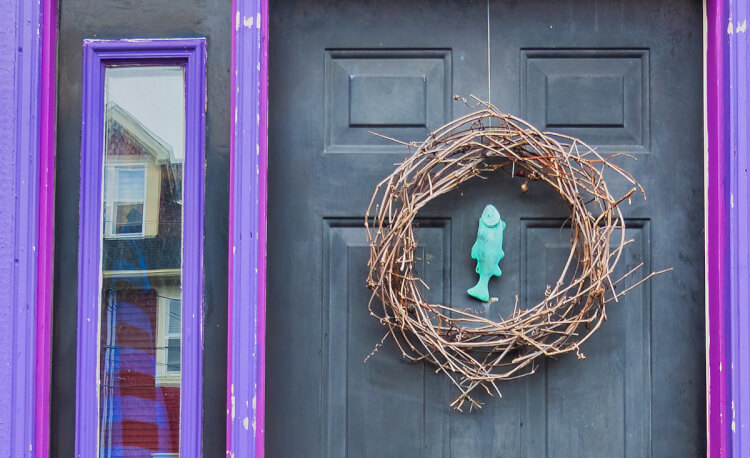
On our first downtown walk, we spent an hour or more to get the lay of the land. We started at Duckworth Street; from here we could explore intersecting streets in both directions. Another day we came back to wander a little farther afield and photograph the buildings in different light. The splashes of colour can even brighten a cloudy or rainy day.
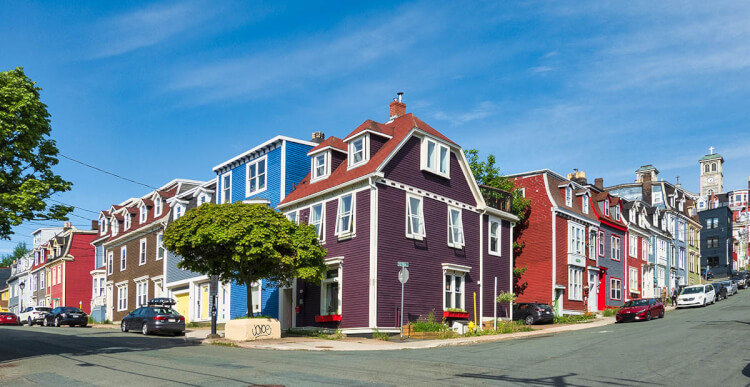
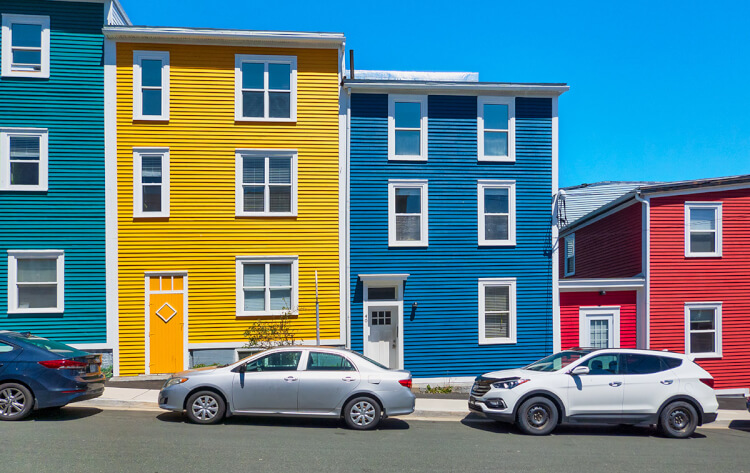
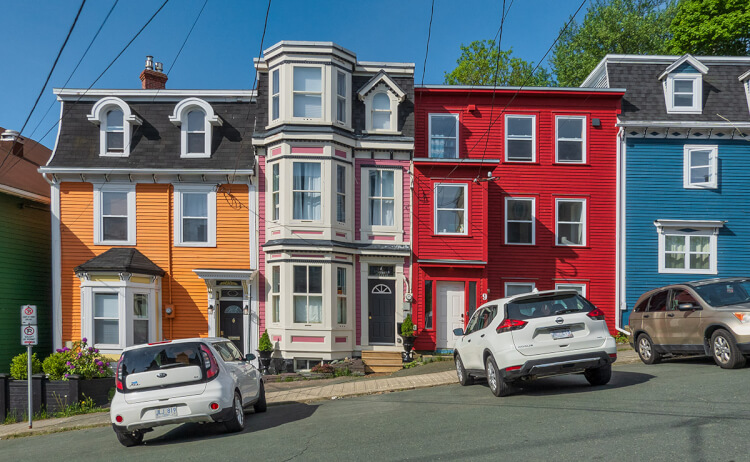
Setting the Stage
The capital and largest city of Newfoundland and Labrador, St. John’s is one of Canada’s, and North America’s, oldest cities. Newfoundland became an English colony in the 1500s and St. John’s grew into an administrative and supply centre for the fishing industry. The city was destroyed by fires several times, with the biggest disaster in 1892 when two-thirds of St. John’s burned. Many historic houses we see today were built after the Great Fire.
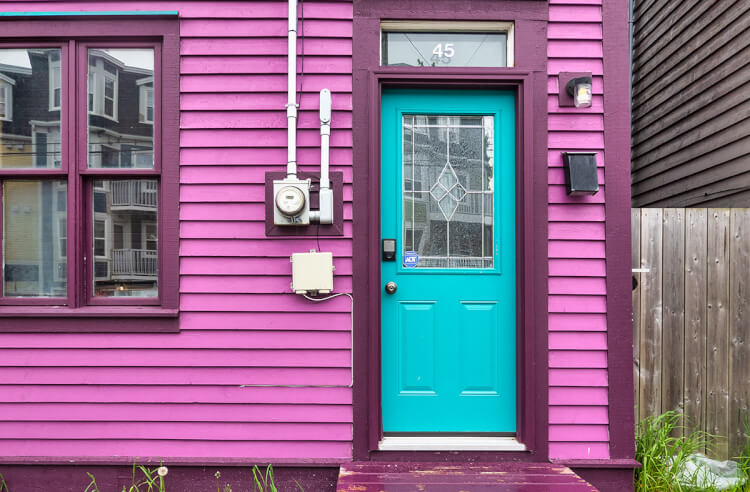
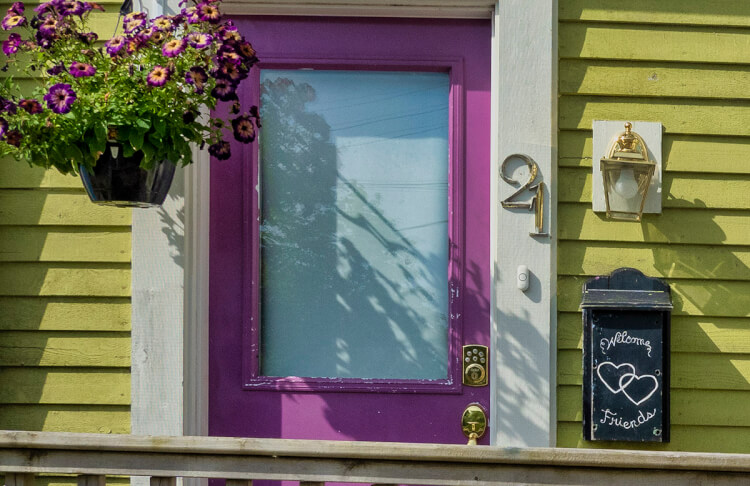
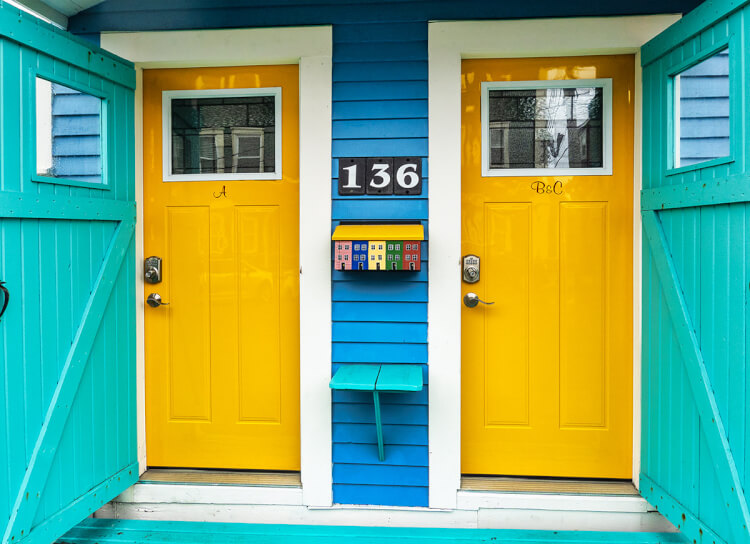
Distinctive and Bold Colours
But why so many colours? There are a lot of stories and folklore associated with their origin. One is that having a bright pop-out colour made it easier for fishermen to see their houses as their ships pulled into harbour in the fog. Or if you over-indulged a wee bit too much at the local pub, it would be easier to find your way to the right house. Yet another is that people simply used whatever paint happened to be available.
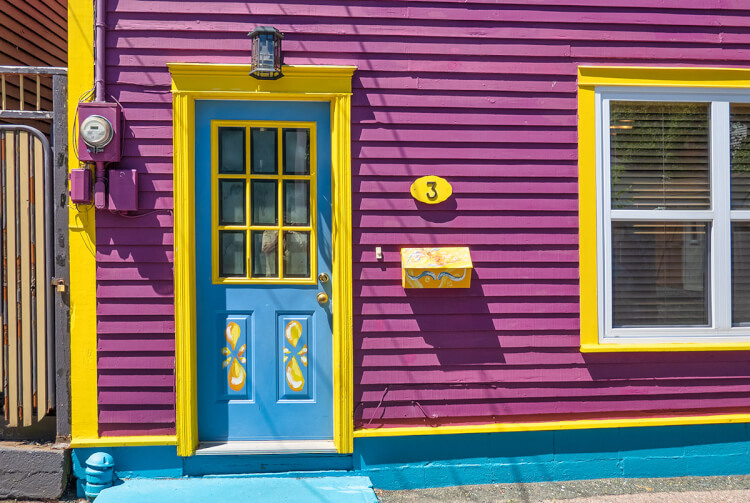
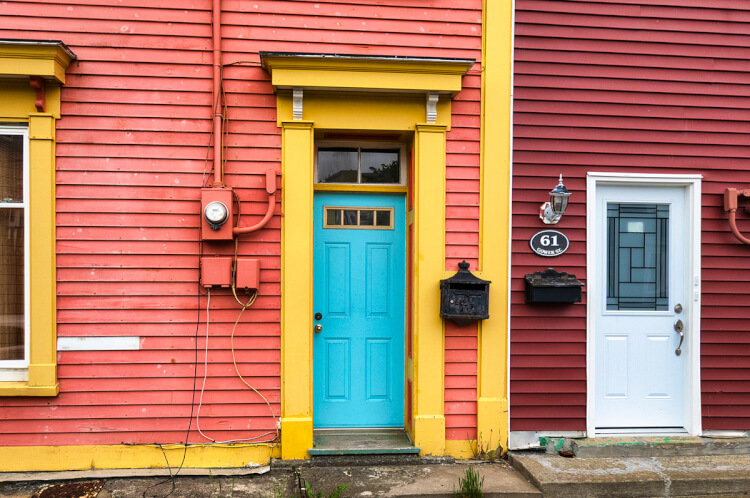
But the real story is more straightforward. It had to do with a downtown revitalization initiative in the 1970s which really took off. Perhaps that’s the most fitting reason of all – paint your house a splashy colour simply because it looks cool. And better yet – anything goes. If your neighbour’s house is red, why not make yours yellow? A purple house with a blue door… why not? If a single colour strikes you as too ordinary, why not stripes? Even the mailboxes show their colours.
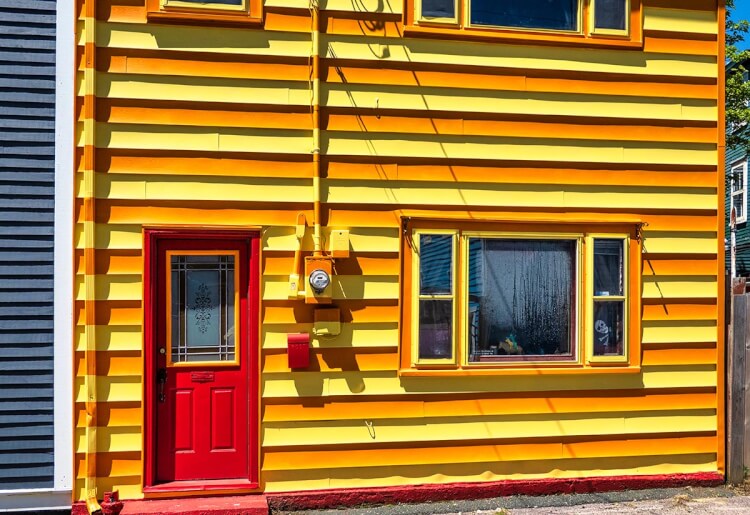
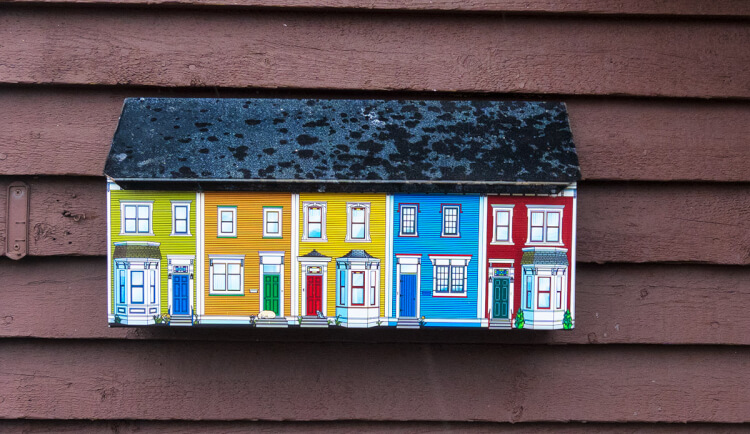
Any way you look at it, the Jellybean Row Houses have become an iconic part of St. John’s character, and a must-see for visitors. The tourism website for Destination St. John’s promises “colourful encounters”. After exploring St. John’s, most other cities seem downright drab.
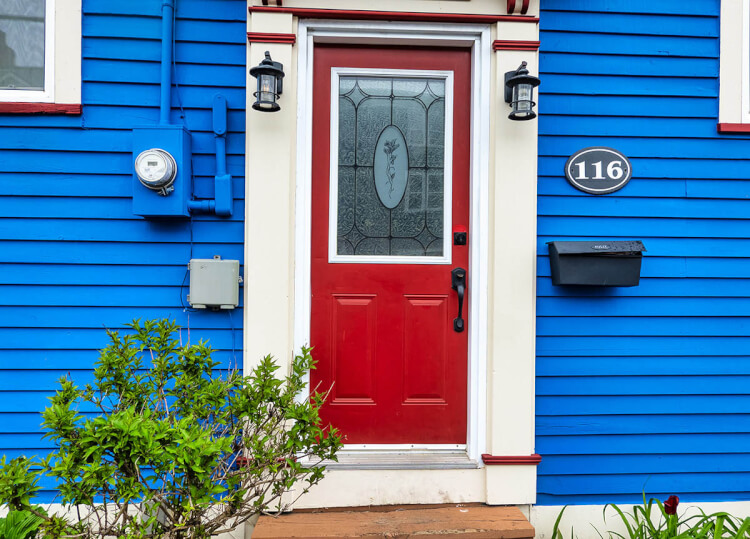
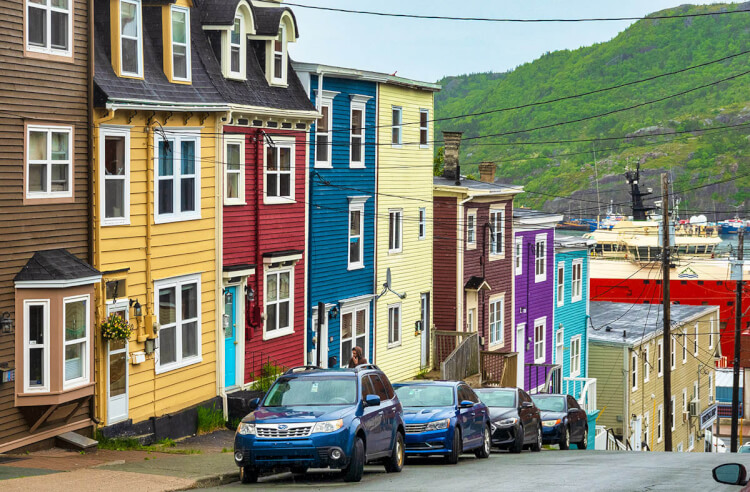
SUBSCRIBE to Photojourneys below
Feel free to PIN this post on Jellybean Row Houses in St. John’s, Newfoundland for later
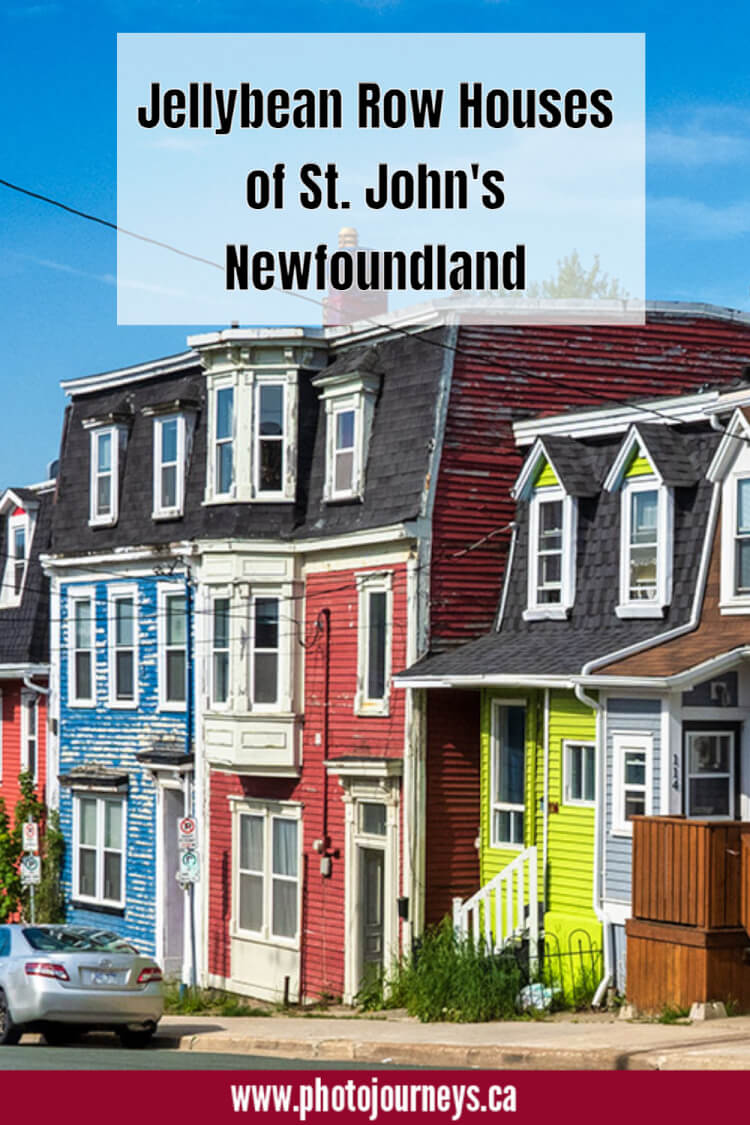


Bright colours
Theses houses were dull and dilapidated until the 1970s. They were not brightly painted.
They are called Jellybean Row because they are “row houses” (or townhouse style